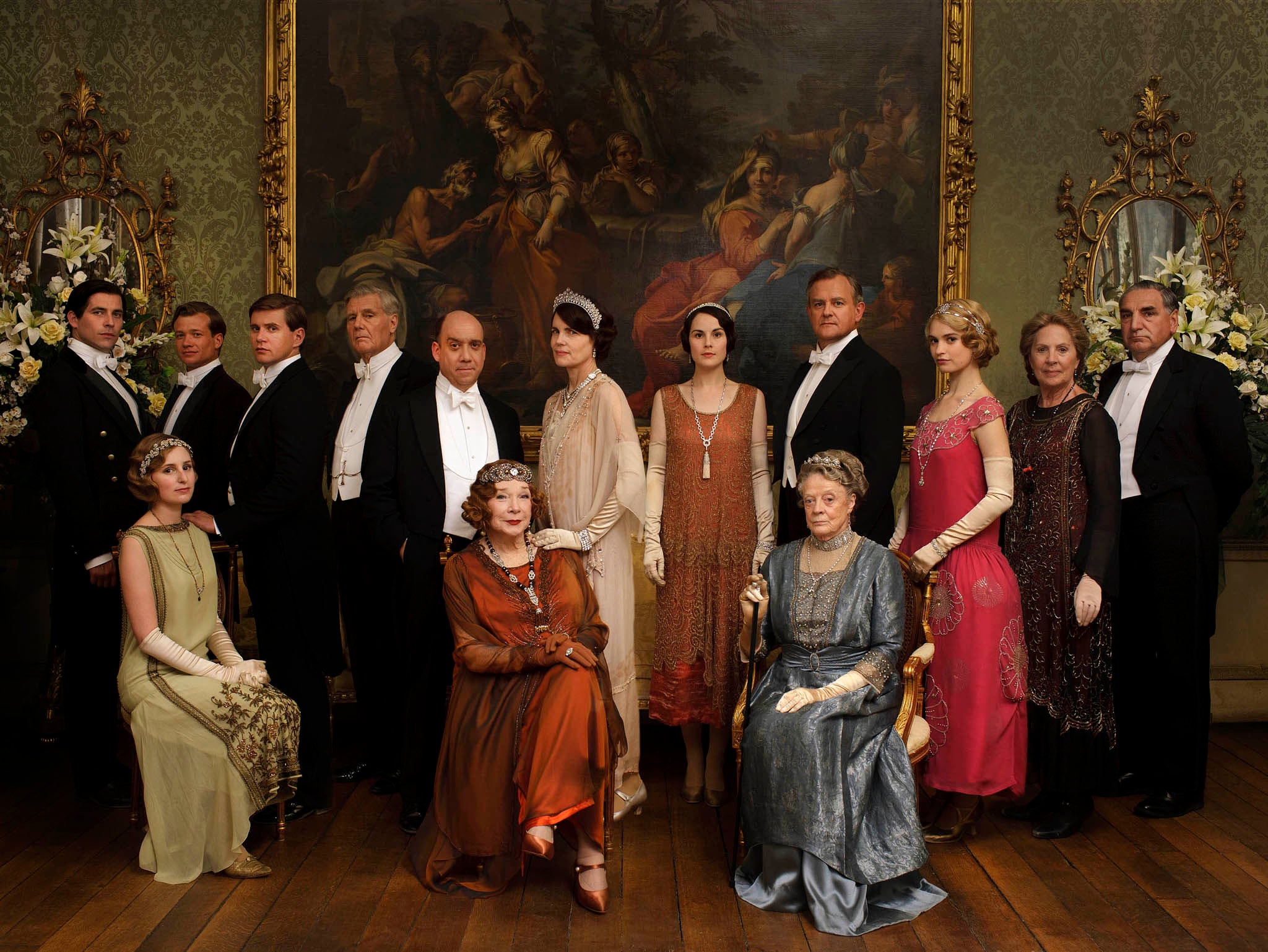Like all hit TV shows, Downton Abbey is cursed to outstay its welcome
More often than not, killing a show off early is the kindest thing you can do

It’s the year 2024 and on ITV’s Downton Abbey, Countess Mary’s latest husband is on a tour of duty in Iraq leaving her free to indulge her twin passions of gin and the new gardener.
Her teenage daughter Lady Cara – pretty, but oh so rebellious – has manoeuvres of her own to deal with as her modelling career takes off. A major Calvin Klein underwear campaign is in the bag, but will her partying lifestyle soon take its toll? At least if Cara makes a few million, they might be able to fix the holes in Downton’s roof. Either that, or Lady Mary will have to agree to letting a television crew in to make a fly-on-the-wall documentary about how the aristocracy lives now – all red trousers, chilly drawing-rooms and dust.
Meanwhile, the Dowager Countess is still alive even though the period drama has been going so long it has now reached the 1990s. You can’t kill off a Dame. Especially not when she is playing the only role left on television for an actress over 60. So Violet is still there, aged 146, give or take, sitting bolt upright in a Havisham concoction of lace and whalebone, muttering acidic bons mots about Tony Blair (“Never trust a man called Tony, I say.”) and wondering hilariously what “zig-a-zig-ah” could possibly mean.
It could happen. ITV’s blockbuster period drama previewed its fifth season this week, and producers suggested that a sixth would not be far behind. The new series, due to start next month, opens in 1924 against the backdrop of Ramsay MacDonald’s first Labour government. According to Lord Grantham, the new rule heralds nothing less than the “destruction of us and everything we stand for”.
I wouldn’t be so sure, Robert. There are surely at least 10 series in the ups and downs of the Crawleys yet. The formula is simple but effective, as executive producer Gareth Neame told The Independent this week: “The secret is doing two contradictory things at the same time. One is to essentially deliver the audience a version of the same episode every week. Yet at the same time, you have to deliver something that’s completely original and fresh.”
The originality this time around comes in the form of a fire (it worked for Emmerdale) and, say producers, more laughs. After the fourth series was castigated for being too dark – the mourning of Matthew Crawley, war, a shameful pregnancy and the rape of a maid – the show has listened to its critics and viewers and promises a lighter series with more fun.
There is one problem with that: the show has listened to its critics and viewers. That is the beginning of the end in television and always has been, ever since the first episode of the fifth series of Happy Days when The Fonz strapped on his water-skis and jumped over a shark.
Downton Abbey was always set for success – a Sunday night period drama, written by the country’s premier snob and starring a Bafta-baiting cast. Viewers love the upstairs-downstairs tension, the costumes, the caustic asides, the awkward referencing of real historical events, the glaring anachronisms and the opportunity to get outraged about the fictional rape of a fictional maid. It has been an enormous hit, screens in 255 countries worldwide, and has made pots of money for ITV and stars of the likes of Dan Stevens, Michelle Dockery and the other cast members who are lucky enough to live above stairs.
None of that means that Downton Abbey should live forever. In fact, it should have been killed off at the same time as Matthew Crawley, on Christmas Day in 2012. If it had been, people would be talking about it now in the reverent tones reserved for Fawlty Towers, Blackadder and The Office. They left us wanting more.
However loved, there is no television show that would not benefit from being killed off after two or at most three series. If there are odd, exceptional long-runners – Friends, ER, The Simpsons – not one has ever seen a drastic improvement seven series in. Quite the contrary: from Big Brother to Lost, more always means less as complacency, familiarity and viewer expectations muddy the creative waters.
Good ideas are hard to come by in television; rarely are they good enough to sustain over 12 hours of entertainment. The recommissioning without end of Downton Abbey is typical of British television’s risk-averse culture. It is a hit and therefore it will be flogged until the public run out of patience or the Dowager runs out of quips. And who would dare bet against the Dowager?
Join our commenting forum
Join thought-provoking conversations, follow other Independent readers and see their replies
Comments
Bookmark popover
Removed from bookmarks